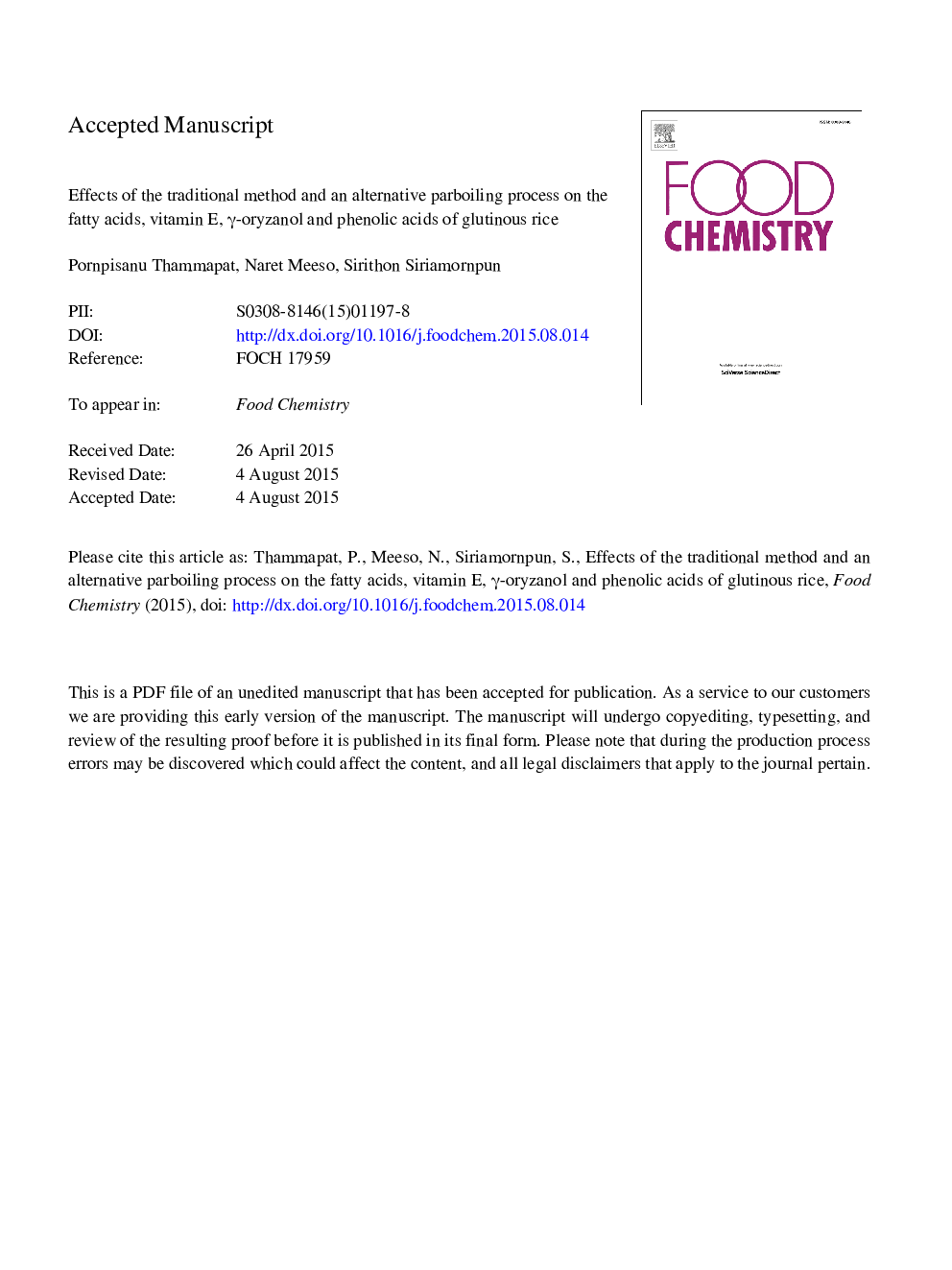| Article ID | Journal | Published Year | Pages | File Type |
|---|---|---|---|---|
| 7589783 | Food Chemistry | 2016 | 28 Pages |
Abstract
The impacts of traditional and alternative parboiling processes on the concentrations of fatty acids, tocopherol, tocotrienol, γ-oryzanol and phenolic acids in glutinous rice were investigated. Differences between the two methods were the soaking temperatures and the steaming methods. Results showed that parboiling processes significantly increased the concentrations of saturated fatty acids (SFA), mono-unsaturated fatty acids (MUFA), γ-oryzanol, γ-tocotrienol and total phenolic acids (TPA) in glutinous rice, while α-tocopherol, γ-tocopherol and polyunsaturated fatty acids (PUFA) decreased (p < 0.05). Both the traditional and alternative parboiling methods increased the levels of γ-oryzanol by three or fourfold compared with the level of γ-oryzanol in raw rice. Parboiling caused both adverse and favorable effects on phenolic acids content (p < 0.05). We found that glutinous rice, parboiled using our newly developed method, had higher levels of PUFA, total vitamin E, γ-oryzanol, hydrobenzoic acid, hydroxycinnamic acid and TPA compared to the traditional method.
Related Topics
Physical Sciences and Engineering
Chemistry
Analytical Chemistry
Authors
Pornpisanu Thammapat, Naret Meeso, Sirithon Siriamornpun,
